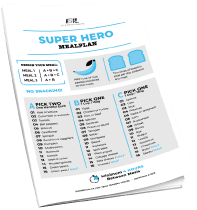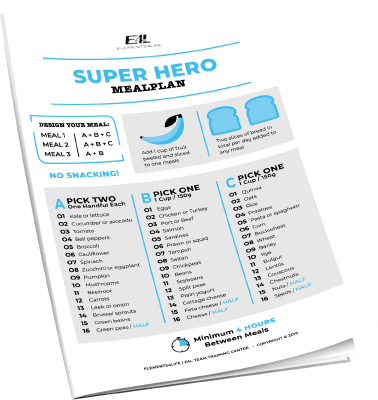Optimal longevity is influenced by a multitude of factors that encompass various aspects of health and well-being.
In the pursuit of a healthier and more fulfilling life, the concept of fitness has evolved beyond mere physical appearance and athletic performance.
Longevity refers to the length or duration of a person’s life, particularly the measure of how long someone lives. It’s often used to describe the potential for a longer life expectancy or the pursuit of living a longer and healthier life. In the context of human health, longevity is not just about extending the number of years lived, but also about maintaining a good quality of life and overall well-being as one ages.
Longevity is influenced by a combination of genetic, environmental, lifestyle, and healthcare factors. These factors can include genetics, access to medical care, diet, physical activity, stress management, sleep quality, socioeconomic status, and exposure to environmental toxins.
The concept of longevity is not limited to extending life but also emphasises living those extra years in good health and with a high level of functioning.
Achieving longevity often involves adopting a holistic approach to health that includes preventive measures, healthy habits, and a focus on overall well-being. It’s important to note that while there are factors that can influence how long an individual may live, no one can predict an exact lifespan, and personal choices can significantly impact one’s potential for a longer, healthier life.
Embracing a holistic approach, we now recognise that fitness is not just about achieving short-term goals, but about cultivating habits that contribute to our overall well-being and longevity. Seeing fitness through the lens of longevity shifts the focus from quick fixes to sustainable lifestyle changes that support not only a robust physique, but also a resilient mind and vibrant spirit. This perspective acknowledges that our bodies are not isolated entities, but intricate systems where each component affects the whole.
As we delve into the intricate interplay between nutrition, exercise, stress management, and mental well-being, we uncover the blueprint for a life that is not only active and vigorous in the present, but also promises vitality and fulfilment well into the future.
Join us on this journey as we explore the synergistic relationship between fitness and longevity, unraveling the secrets to not just living longer, but thriving throughout the journey.

Here are some key elements to examine when it comes to taking a holistic, longevity-focused approach to fitness:
Every mineral and vitamin plays its role in the harmony of optimal physical and emotional condition.
It is a symphony of individual frequencies that support longevity, fitness and health.
Detecting and correcting nutritional deficiencies involves a performance over pleasure diet and, when necessary, the use of supplements as our food and water is not what it used to be due to industrial farming and water treatment systems.
We are all deficient and in various states of inflammation and society needs to make an immediate change.
As individuals we can start with our own personal environment.
Habits and Routines
Establishing a consistent fitness routine is one of the most effective ways to ensure long-term health. It’s not about pushing yourself to the limit in every session, but rather about consistent, manageable exercises that you can sustain over the long haul. Additionally, incorporating healthy habits into your daily routine, such as staying hydrated and maintaining a balanced diet, significantly contributes to longevity-focused fitness.
Stress Management
The impact of stress on overall health and longevity cannot be overstated. Chronic stress can lead to health problems like hypertension, heart disease, obesity, and mental health disorders. Therefore, integrating stress management techniques into your fitness regimen, such as yoga, meditation, or simply taking time off to relax and recharge, is crucial for longevity.
Importance of Sleep
Never underestimate the power of a good night’s sleep. Sleep is the body’s natural way of healing and rejuvenating itself. Adequate sleep enhances mood, sharpens the mind, and optimises physical performance – all essential for long-term fitness. It’s recommended to aim for 7-9 hours of sleep per night to sustain optimal health and longevity. 5-6 hours per night or less is NOT enough.
Recovery
In the context of fitness and longevity, recovery is just as important as the workout itself. Taking time to rest allows your body to repair tissues, build strength, and reduce the risk of injury. Incorporate rest days into your workout schedule, and consider practices like foam rolling, stretching, and fascia massage to aid in recovery.
Mindset
Finally, cultivating a positive, forward-thinking mindset is a cornerstone of longevity-focused fitness. Adopting a growth mindset – the belief that abilities and intelligence can be developed – can motivate you to persist in the face of challenges. Embrace each step of your fitness journey, celebrate small victories, and remember that consistency is key to longevity.
The Role of Community and Social Connections
Do not underestimate the power of community and social connections when it comes to longevity and fitness. Being part of a supportive community, whether it’s a running group, a fitness class, or an online forum, can greatly enhance your motivation and commitment to a healthy lifestyle. Social connections also provide a sense of belonging and shared purpose, which contribute not only to physical health but also to mental and emotional well-being.
Personalised Approach to Fitness
Remember, there is no one-size-fits-all approach to fitness. Each person has unique needs, abilities, and goals, so it’s important to identify what works best for you. This could mean modifying exercises, experimenting with different types of workouts, or tailoring your diet to better suit your nutritional needs. Emphasising personalisation in your fitness journey will ensure that it is sustainable, enjoyable, and effective in promoting long-term health.
Regular Health Check-ups
Lastly, regular health check-ups are crucial in a longevity-focused fitness approach. These check-ups allow for early detection and treatment of potential health issues, ensure that you are meeting your nutritional needs, and provide a chance to reassess your fitness goals and strategies. Be proactive about your health and seek professional advice when needed. This will help you stay on track and adjust your plan as necessary for optimal health and longevity.
By incorporating these strategies into your fitness regimen, you can create a comprehensive approach that promotes longevity and overall health. Remember, fitness is a lifelong journey, not a destination. Enjoy the process and celebrate each step towards a healthier, longer life.
As we strive to take a comprehensive approach to fitness geared towards longevity, it’s important to remember that it’s not just about the physical aspects. Mental and emotional health play a pivotal role in our overall well-being and longevity.
Mental Health and Fitness
Just as physical fitness improves your body’s health, mental fitness helps in achieving and maintaining mental stability and resilience. Activities like reading, solving puzzles, or engaging in challenging conversations can boost mental fitness. Building a positive self-image, or a positive perception of one’s self, can also tremendously impact your mental health, which in turn reflects on your physical health.
Emotional Health and Fitness
Emotional health refers to our ability to understand and manage our emotions. High emotional health correlates with increased productivity, a more robust immune system, and, of course, improved longevity. Ways to boost emotional health include staying positive, practicing gratitude, and fostering strong relationships.
The Relationship between Physical, Mental, and Emotional Health
It’s crucial to understand that physical, mental, and emotional health are intertwined. Chronic physical illness can lead to an increased risk of mental illness, and poor mental health can negatively affect physical health, leading to an increased risk of certain conditions.
Remember, seeing fitness through the lens of longevity entails more than just maintaining a regular workout routine and adhering to a balanced diet. It’s about a holistic approach to lifestyle changes, encompassing physical, mental, and emotional health. Embrace this comprehensive approach, and enjoy the journey to a healthier, longer life.
Taking a pre-emptive and preventative approach to resolving health issues is indeed crucial for addressing root causes rather than merely treating symptoms.



















 ‘Service’ defined as ‘the action of helping or doing work for someone’ - the service that Elements 4 Life provides goes beyond this. The coaches are genuine, their approach to training is exciting and progressive, you will be supported and challenged to be the best version of yourself – mind and body. Then there’s the amazing people, our E4L community, this is what makes the gym so unique to all the other gyms I’ve been a member of.
‘Service’ defined as ‘the action of helping or doing work for someone’ - the service that Elements 4 Life provides goes beyond this. The coaches are genuine, their approach to training is exciting and progressive, you will be supported and challenged to be the best version of yourself – mind and body. Then there’s the amazing people, our E4L community, this is what makes the gym so unique to all the other gyms I’ve been a member of. 





